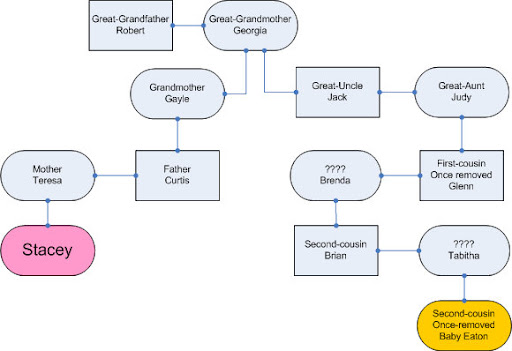I found this riddle today in an alt.usage.english FAQ:
Think of words ending in 'gry'. Angry and hungry are two of them.
There are only three words in the English language. What is the
third word?
The FAQ talks about some word and phrase origins that are in question (posh, widget, face the music, get the lead out, etc.), examples of common English usage that is in dispute (begs the question, near miss, could of), and words that people are commonly looking for, like the name of the grass strip between the road and the sidewalk. And words ending in -gry, specifically to answer the riddle above, and thereby missing the entire point. Let me re-punctuate one of those sentences, in case you've never seen that one before:
There are only three words in "the English language".
Get it?
It's a corny joke, really, and one my daughter found some time ago and showed off to me. Those situations present me with a problem, namely I don't find the joke very funny, but I love it when my daughter thinks to share "cool" things she finds at school with me. I don't fake emotion I'm not feeling with her because I want to be honest with her (and because I normally don't have to -- I'm happy when she's around, and she's into some interesting stuff now), so I struggle with encouraging her to bring stuff like that to me, and try to remember how if it were brand new to me, and I were 10, how differently I would see it.
For the -gry words, there are several, most not used in common English. Here are three, in addition to "hungry" and "angry", that I don't think the reader will need defined:
cottagry
messagry
scavengry
This reminds me of a period in my life where I was asked a lot of what were thought to be "brain stimulating" questions. The year is 1980. After scoring high on the California Achievement Test, I am enrolled for the fourth grade in the Walkertown Gifted and Talented program near Winston-Salem, North Carolina.
It was an experimental program, complete with a Spanish teacher who would come in once a week and read random Spanish stories and have us try to guess what they were about, a week long field trip of the state (the sand dunes at Kitty Hawk and the Wright Brothers museum were my personal highlights), and the aforementioned stimulating questions brought up in class frequently. Here are a few examples:
A man hears his doorbell in the middle of the night, and answers the door, turning on the porch light. Before he can invite his guest in, he sees the dust in the air moving around, illuminated by the porch light, and he begins a sneezing fit. What happened? Did the light energy move the dust? Did he see the dust, and think about sneezing? Was the dust always moving and him opening the door let it in? [This question was left open-ended, used similarly to a Zen koan.]
Three prisoners, Frank, Bob, and Sam, are offered the chance to be let go, if they can guess the color of the hat on their head without looking at it. If they guess wrong, they are shot and killed, if they say they don't know, they just stay in prison. There are 5 hats in a trunk, two of them white, three of them red. The men are blindfolded, random hats are put on their heads, and the trunk is then closed, and the blindfolds are taken off. Frank says "I don't know," as does Bob. Sam sees that Frank is wearing a white hat, and Bob a red one, and gets the benefit of being able to analyze their hats and their decision not to guess before announcing what color he is wearing. Can he really be sure what color hat he is wearing, and if so, what color is it? [I'll post the answer to this on Monday, to give anyone interested a chance to solve it.]
And the pièce de résistance, a written test the class was given:
1 - Read all the questions in this test.
2 - Add these numbers: 1,4,17,22
3 - Count backwards from 10 to 1, aloud.
4 - more inane simple tasks..
.
.
.
50 - Now that you've read all the questions, stop here and turn the test in without answering any questions.
Now, the problem with this test that I had at the time was simple, and defeated the whole point of the exercise - question 50 was illegible. The entire test was handwritten, and photocopied poorly for all the students. When the teacher wrote the test, she didn't leave enough space for question 50, so wrote it very small at the bottom of the page. I could not read the question, the punchline of the test, so I took the paper to the teacher and asked "What does this say?"
She smiled and shook her head. I didn't understand why she was smiling or why she wouldn't decipher her henscratch, so I went back to my desk and finished the questions I could read, including counting aloud, like most of the other kids ended up doing. A few kids successfully deciphered the last question, and did not take the test.
Years later, my own daughter was subjected to something similar, and when she told me about it, something straightforward occurred to me: logically, you should still take the test. The first question asks simply to read all the questions, not to act on them, and certainly not to "jump out of the system", as Doug Hofstadter would say, and follow the instructions on only question 50.
My teacher said, smugly, approximately the same thing Stacey's did: This was a test to see who was paying attention to detail. Like the "ends with -gry" exercise, this attempts to be funny, and fails. If I had been able to read the last question on my test, I probably wouldn't have taken the test, like a few others. Not because it made sense to do it that way, but because I was lazy, and erred on the side of least action when faced with ambiguity.









